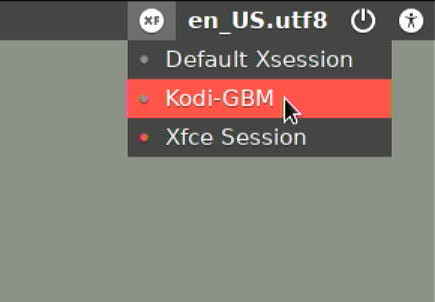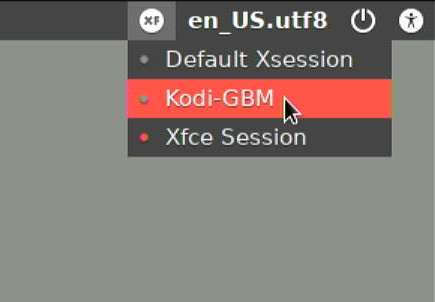-
Posts
943 -
Joined
-
Last visited
Content Type
Forums
Store
Crowdfunding
Applications
Events
Raffles
Community Map
Everything posted by JMCC
-
I uploaded an updated version of the package bundle, with MPV and a few other updates that I found laying around: https://mega.nz/file/ZmwDBL6b#pGgXVRnoC0jU6dwFJebBcLDXyTNqdkmw3qvsOLz5qUI
-
Here you should have all the debs, you will have to install them manually. Start with media-buster-legacy-rk3328, and then install manually all the deps https://mega.nz/file/RnBQWbBJ#bpVSDcqjatbpwIlKMRopnzSh01ebOxzbMRh1UJ2zBBE
-
As I said just above, look in the first post
- 251 replies
-
- Orange Pi 4
- ROCKPro64
-
(and 1 more)
Tagged with:
-
Hello! In the first post, you have links to all the sources, most of them from my GitHub repos. The procedure might be outdated, though, I haven't touched it since 2019. For Kodi, you can try the rockchip branch for legacy kernel, or the mainline branch for current. Compilation instructions are included in the repo. Good luck!
- 251 replies
-
- Orange Pi 4
- ROCKPro64
-
(and 1 more)
Tagged with:
-
It would need a complete rework and recompile
-
Well, I don't even own a RPi, but here are some suggestions: You mention several OS'es, but not Armbian. Have you tried Armbian? If not, that would be the first thing to do, specially since you asked here :) In your video, you show RISC OS, and apparently it is running a armv7 version. Could it be that 32-bit ARM OS's are working, but 64-bit are not? If this is the issue, then maybe you can try to build 32-bit Armbian image and see if it works. It could also be a device tree issue. Maybe you can extract the DTB from some of the OS's that are working, and try to use it with an Armbian image.
-
IT'S FINALLY HERE... THE OFFICIAL ROCKCHIP-LEGACY MULTIMEDIA INTEGRATION After two years of using a separate script to enable the multimedia features in RK3288/3328 Legacy Kernel, the whole framework has been incorporated to the official Armbian packaging system. The choice distro for this integration is Debian Buster (see FAQ at the end of this post about the reasons). I. Installation Download a Armbian Buster Legacy Desktop image for your board, and install it with the standard Armbian method. Install the complete multimedia solution with sudo apt update && sudo apt upgrade sudo apt install media-buster-legacy-tinkerboard --install-recommends ## Or ## sudo apt install media-buster-legacy-rk3328 --install-recommends The switch "--install-recommends" will add the whole Kodi binary addons collection (retro-gaming cores, music visualizations, screensavers, additional media decoders/encoders, vfs, etc.), plus the GLES-to-OpenGL wrapper "gl4es". II. Features Accelerated GLES/EGL X desktop: No action needed. Accelerated Chromium, with WebGL and video display acceleration: No action needed Desktop video player capable of smooth 4K HEVC-HDR: Use the "Rockchip Gst Player" from the Multimedia menu, or choose it with right-click on the media file. Command-line 4K playing is also possible with "gst-play-1.0 --videosink=kmssink". RKMPP-accelerated MPV: Use normally for standard operation (windowed with mouse-operated GUI). For fullscreen, keyboard-operated mode, use the command line switch "--gpu-context=drm" (this will allow you to play smooth 4K). - See instructions below, in the next post, for playing Youtube videos up to 4k with this MPV. ISP Camera with real-time h.264/1080p HW encoding (RK3288 only): Using the Gstreamer Plugin. Check this wiki for instructions on how to use it. Most of it applies to Armbian, except for the selection of ov5647/imx219 camera, which must be done using DT overlays. OpenCL 1.2 support (RK3288 only): It will be fully functional, no further action needed. You can download some tests and examples from this link. Kodi 18.9 Leia with full RKMPP+GBM acceleration, 4K-HDR capable: You can start it from Light DM menu as your user account: Alternatively, you can also run it as a system service with these command lines: sudo systemctl disable lightdm sudo systemctl enable kodi-gbm sudo reboot Full collection of Kodi binary add-ons: Includes retrogaming cores, media encoders and decoders, PVR, screensavers, vfs and audio visualizations. They are all installed with the package "kodi-addons-full", but are disabled by default. They need to be enabled individually within the Kodi GUI. OpenGL 2.1 support through the gl4es wrapper: It is installed with the package "gl4es", with no further action needed. III. Sources This is the list of the sources used for the packages: IV. FAQ ¿Why did you use Debian Buster as a base for this implementation? It was the most appropriate for several reasons. Upstream Rockchip-Linux developers use Debian buster, so the software could be ported with less modifications than if we chose a different distro. Besides, it is a completely stable distro, unlike Bullseye, which is a moving target as of today. It also has Chromium as a package, unlike Focal that uses snap instead. For last, it has a good backports repo, with several libs that would otherwise need to be compiled and maintained if we chose, for example, Focal. ¿Why Legacy instead of Mainline? This is an implementation based on the vendor's BSP kernel. It has been tested and is reliable, which many people will prefer rather than having a bleeding-edge, less stable implementation. In addition to that, Mainline upstream multimedia support is still a WIP, and lacks many features that are only present on Legacy kernels. ¿Will you add new features to this implementation? No, this implementation will only receive bug fixes if necessary. From now on, all multimedia work will be focused on Mainline and recent distros (like Focal or Bullseye). All new features will go there.
-
IT'S FINALLY HERE... THE OFFICIAL ROCKCHIP-LEGACY MULTIMEDIA INTEGRATION After two years of using a separate script to enable the multimedia features in RK3399 Legacy Kernel, the whole framework has been incorporated to the official Armbian packaging system. The choice distro for this integration is Debian Buster (see FAQ at the end of this post about the reasons). I. Installation Download a Armbian Buster Legacy Desktop image for your board, and install it with the standard Armbian method. Install the complete multimedia solution with sudo apt update && sudo apt upgrade sudo apt install media-buster-legacy-rk3399 --install-recommends The switch "--install-recommends" will add the whole Kodi binary addons collection (retro-gaming cores, music visualizations, screensavers, additional media decoders/encoders, vfs, etc.), plus the GLES-to-OpenGL wrapper "gl4es". II. Features Accelerated GLES/EGL X desktop: No action needed. Accelerated Chromium, with WebGL and video display acceleration: No action needed Desktop video player capable of smooth 4K HEVC-HDR: Use the "Rockchip Gst Player" from the Multimedia menu, or choose it with right-click on the media file. Command-line 4K playing is also possible with "gst-play-1.0 --videosink=kmssink". RKMPP-accelerated MPV: Use normally for standard operation (windowed with mouse-operated GUI). For fullscreen, keyboard-operated mode, use the command line switch "--gpu-context=drm" (this will allow you to play smooth 4K). - See instructions below, in the next post, for playing YouTube videos up to 4K with this MPV. ISP Camera with real-time h.264/1080p HW encoding: Using the Gstreamer Plugin. Check this wiki for instructions on how to use it. Most of it applies to Armbian, except for the selection of ov5647/imx219 camera, which must be done using DT overlays. OpenCL 1.2 support: It will be fully functional, no further action needed. You can download some tests and examples from this link. Kodi 18.9 Leia with full RKMPP+GBM acceleration, 4K-HDR capable: You can start it from LightDM menu as your user account: Alternatively, you can also run it as a system service with these command lines: sudo systemctl disable lightdm sudo systemctl enable kodi-gbm sudo reboot Full collection of Kodi binary add-ons: Includes retrogaming cores, media encoders and decoders, PVR, screensavers, vfs and audio visualizations. They are all installed with the package "kodi-addons-full", but are disabled by default. They need to be enabled individually within the Kodi GUI. OpenGL 2.1 support through the gl4es wrapper: It is installed with the package "gl4es", with no further action needed. III. Sources This is the list of the sources used for the packages: IV. FAQ ¿Why did you use Debian Buster as a base for this implementation? It was the most appropriate for several reasons. Upstream Rockchip-Linux developers use Debian buster, so the software could be ported with less modifications than if we chose a different distro. Besides, it is a completely stable distro, unlike Bullseye, which is a moving target as of today. It also has Chromium as a package, unlike Focal that uses snap instead. For last, it has a good backports repo, with several libs that would otherwise need to be compiled and maintained if we chose, for example, Focal. ¿Why Legacy instead of Mainline? This is an implementation based on the vendor's BSP kernel. It has been tested and is reliable, which many people will prefer rather than having a bleeding-edge, less stable implementation. In addition to that, Mainline upstream multimedia support is still a WIP, and lacks many features that are only present on Legacy kernels. ¿Will you add new features to this implementation? No, this implementation will only receive bug fixes if necessary. From now on, all multimedia work will be focused on Mainline and recent distros (like Focal or Bullseye). All new features will go there.
- 251 replies
-
11
-
- Orange Pi 4
- ROCKPro64
-
(and 1 more)
Tagged with:





